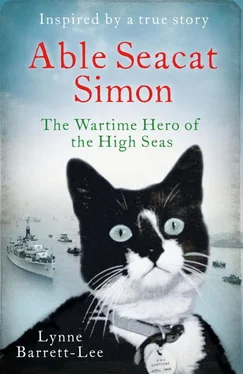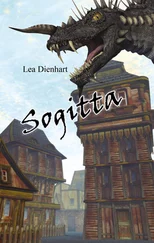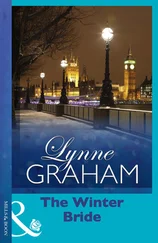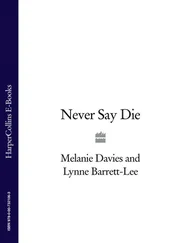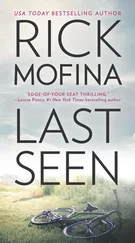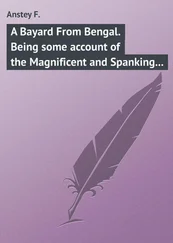My senses told me no, but they were muddled. Eventually I did sleep, though it was fitful enough and shallow enough to allow the noises around me to filter through. And the noises were, by now, at least a little less frightening, the screams and whumps of shells being replaced by very different sounds, a few of them even familiar and reassuring.
I thought I could hear the coxswain. Was that his low, phlegmy rasp? And Peggy? Was that Peggy barking? Oh, I hoped so. After a time, even more reassuringly, I could smell food being cooked, too, immediately conjuring the comforting image of one of my favourite spots in the galley, where I’d sit patiently while Slushy, the cook, trimmed what looked like whole sides of cows so they would fit into the oven, often treating me to a titbit of raw meat.
But such appearance of normality was soon unmasked as an imposter, and even in my weakened state, and with my mind bent so far out of shape by the constant noise in my head and the pain in my hindquarters, I recognised that despite the welcome clangs, thumps and whistles, things aboard the Amethyst were very far from normal. Was the terrible thing that had happened to us still going on in some way?
I strained to make sense of some of the sounds that were reaching me; of men below and along the passageway making strange, mournful noises; of angry shouts; of muffled sobs; of a single, anguished scream from somewhere above. They must have eventually triggered something because more memories started rushing back towards me like a tidal wave surging over a beach. Of seeing things happening to my friends that seemed to defy belief and comprehension.
Of men flailing and shouting, men falling and screaming. Of the acrid taste of smoke and cordite in the air. Of mangled lumps of metal strewn all over the Amethyst , as if flung there, like so much jagged jetsam.
But I mostly saw blood. Viscous, oily pools of it, steam rising from it, almost the colour of Cotton Tree blossom. I remembered lying on the quarterdeck, not understanding how I got there, and seeing blood , instead of water, flowing thickly across the deck and into the scuppers.
I closed my eyes again, hoping to make it all go away. But it wouldn’t disappear. It seemed burned onto my brain.
‘Well, now, look at this one. He really has been in the wars, hasn’t he?’
I woke again with a start, feeling immediately anxious, because I was sure I could sense a stranger standing over me. It was the odour – strong and musky, laced with some fuel-type tang I didn’t recognise. It was alien enough to snap me into consciousness in a moment.
He spoke gently, however, and with a strange twang to his voice. It was a form of human speech that I hadn’t heard before. Disorientated and confused, I tried to open my eyes so that I could see him, but found I couldn’t. My eyelids seemed to be gummed shut. After a couple of painful attempts to part them, I gave up trying. Perhaps I should leave well alone.
‘Something of a miracle he’s still with us, I’d say, Doc, wouldn’t you?’
My heart leaped. I knew that voice. It was Frank! It was Frank ! I couldn’t see him, but I was immeasurably glad to hear him.
I also registered that word ‘Doc’. Was the man a doctor? ‘Sid Horton, one of the ratings, found him lying out on the deck this morning,’ Frank was explaining. ‘We suspect he was in the captain’s cabin when it happened. Took a direct hit. He must have. You saw it, didn’t you? When you came aboard? Beggars belief, it does.’ There was a pause. I tried to imagine their expressions. ‘Well, you could hardly miss it, could you?’ Frank added at last. ‘Poor little blighter must have been blown feet in the air.’
‘So he’s probably lost his hearing,’ the other man said, his odour mushrooming up around my face now, followed by the shock of feeling his fingers brushing against my fur. I tried to calm myself. He was a doctor. He was obviously taking a look at me.
‘Oh, I don’t think so, sir,’ Frank said. ‘I reckon he can hear us well enough, can’t you, Simon?’ To which I managed to respond with all I could manage – a feeble tail flick. It wasn’t much – barely anything – but it seemed it was sufficient. ‘See, Doc!’ said Frank. I could hear the pleasure in his voice.
‘So he can hear,’ said the other man. ‘Well, well, well. And there’s no blood in his ears, so that’s good. Though that’s a nasty burn on his left one, poor thing. But you’ve patched him up, I see.’ He touched me a second time. This time on my shoulder. ‘And that’ll heal quick enough.’ There was another pause. ‘Anyway,’ he said finally. ‘As you say, something of a miracle.’
‘Did what we could,’ Frank said. ‘And if he’s stayed with us this long, I reckon he’ll be okay, don’t you? Ship’s cat, isn’t he? Survivors. What’s to say?’ He cleared his throat. ‘Anyways, leave your things over there, and we’d best be getting you to the sick bay. The worst are gone, as you know, but we’re far from doing well. Though there’s a fair few in the after-mess as well.’ Yet another pause. He cleared his throat again. ‘We’ve run right out of room.’
They left me then, and I could hear their steps echoing down the passageway. And they left me thinking. Yes, perhaps it had been a miracle.
Well, either that or I’d used up one of my nine lives.
Yangtse River, near Tan Ta Chen, Friday 22 April, 1949
Following my visit from Frank and the man he’d called ‘Doc’ the previous day (who turned out to be in the Air Force and was called Flight Lieutenant Fearnley), I had finally found the wherewithal to try to move. I had puzzled long and hard over why – and how – this doctor had come on board the Amethyst. How did he get to us? Or had the ship made it to Nanking without my realising? And where was our own doctor? Had he been injured as well? I didn’t allow myself to consider the other possibility.
I hadn’t moved much, not the first time, because it was still excruciatingly painful. Only sufficient to confirm what I already knew instinctively; that I’d been badly burned, and that my hips and back legs had been lacerated by pieces of shrapnel. Beyond that, I didn’t know, and decided I didn’t want to.
But I was alive, and could hear still – despite the persistent ringing – and my survival had been declared to be a miracle. I wondered if the rest of crew felt the same about it, and doubted it. As Frank had said, I was a ship’s cat, and sailors were superstitious, believing not only in feline powers of survival that went far beyond the credible, but in our ability to keep the crew from harm, too.
I wished I’d never learned that, because the weight of it felt heavy on my shoulders, suffusing me with difficult, distressing feelings. What if I’d stayed up on the bridge? Would I still be here to ponder it? And what of the protection I was assumed to have conferred on the Amethyst ? Where had that gone?
‘You’ll bring us luck, little feller!’ I could hear dear George saying it. And that made me feel desperately sad.
I tried to console myself. George was safe somewhere else. Well, I hoped he was, anyway. I wondered where he was and what he might be doing now. And who knew? Had that luck – however scant, however tenuous – not been with us, perhaps even more would have perished. In any event, I felt humbled and all too aware of my own luck, and for those reasons knew I must bear my pain stoically. For in the time that had now passed since the explosion that had changed everything, I had learned of fates so much worse, so much more final, than mine.
Captain Skinner – brave Captain Skinner – was dead. I had already heard Petty Officer Griffiths discussing that with Lieutenant Weston in the adjacent wardroom; he’d died ashore, on the way to hospital. I’d also deduced – both from what they’d been saying and the way they’d been saying it – that Lieutenant Weston must be quite badly injured too.
Читать дальше
